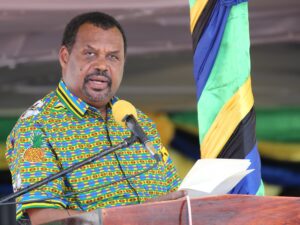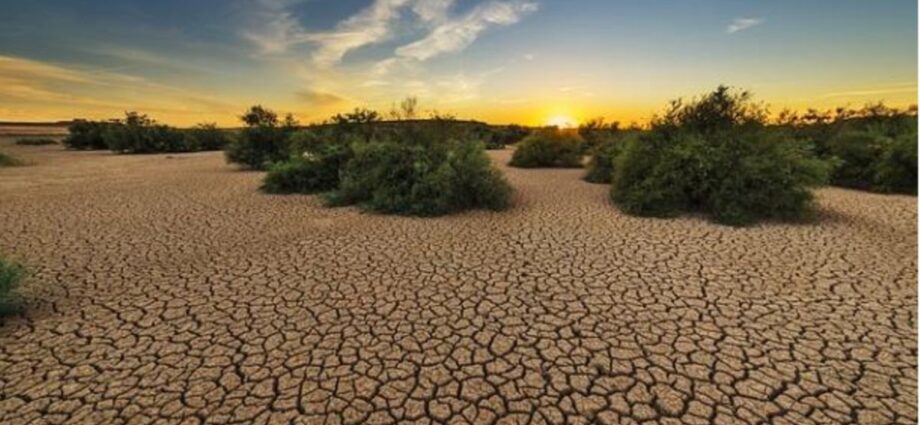Currently, Africa faces one of the worst climate crises in recent memory. From the north to the Horn of Africa, you will find varied climate concerns. In Tanzania’s southern region, drought has wreaked havoc, shuttering people’s livelihoods and leaving scores of animals dead. This is a situation that has not been experienced in many decades. When you look at Kenya, the situation is even worse. Women and girls are bearing the brunt of the worst drought experienced in Kenya for 40 years.
These extreme weather patterns have made what was already a dire economic situation in Africa take a turn for the worse. The United Nations has attempted to intervene to some extent in order to mitigate the situation, but the hope for a more sustainable solution lies in concerted efforts by the industrialized nations, which are the major contributors to the climate crisis.
As has been stated and repeated over and over, Africa contributes the least to the destruction of the environment but pays the biggest price for the aftermath. What is currently happening in many parts of Africa is not solely due to domestic activities; it is a ripple effect of external factors.
When Africa demands the industrialized nations clean up the climate mess, it is their right. The developed countries’ pledge to take action or provide financial facilitation shouldn’t be construed as a sign of tokenism or aid given to Africa.
It is against this background that what transpired at COP27 is viewed as a betrayal to Africa. When leaders met in Glasgow for COP26, it was believed that the climate change conference would be the beginning of more stern measures and the implementation of key climate actions. However, all the world got were more pledges. The message from COP26 ushered in new hopes for a greener future and salvaging Africa’s damaged environment. What was left was implementing the pledges.
When COP27 was announced and Egypt, a country in northern Africa, was chosen as the host nation, Africans breathed a sigh of relief. Finally, the climate change discourse was going to be held on home soil. There were many rallying calls for Africa to take charge of the narrative and raise its case in Egypt. And up until the event, it was believed that Africa stood a chance to finally demand vivid actions.
However, by the end of the summit on November 18, all expectations had been dashed. All that was left was a feeling of betrayal. Yet again, the world is procrastinating, and Africa, more than any other country, is feeling the pinch.
Take charge
It has been suggested by some that Africa should stop overdependence on the developed world to solve the climate crisis. However, methods should be devised to hold the major contributors to the climate catastrophe accountable, as well as clear steps beyond regulatory measures to ensure we don’t fall back into the sinkhole.
Share this news
This Year’s Most Read News Stories

Rare megamouth shark found in Zanzibar for the first time – why so little is known about it
The recent sighting was only the sixth time a megamouth had ever been found off the coast of Africa.Continue Reading

ZSSF money not for projects, says Ali Karume
Unguja. Veteran politician and diplomat Ali Karume has called on authorities of the Zanzibar Revolutionary Government (SMZ) to refrain from using the Zanzibar Social Security Fund money for establishing commercial projects.Continue Reading

Tanzania Declares Marburg Outbreak – Africa CDC Mobilizes Immediate Response

Addis Ababa, January 20, 2025</Strong> — Tanzania has declared a Marburg virus disease (MVD) outbreak after confirming one case and identifying 25 suspected cases in the Kagera Region of Northwestern Tanzania. The Marburg virus, a highly infectious and often fatal disease, is similar to Ebola and is transmitted to humans from fruit bats and monkeys. This outbreak marks the nation’s second encounter with the deadly virus, following the outbreak in Bukoba District of Kagera Region in March 2023, which resulted in nine cases and six deaths.
In response to this urgent threat, the Africa CDC is mobilizing strong support to help Tanzania contain the outbreak. A team of twelve public health experts will be deployed as part of an advance mission in the next 24 hours. The multidisciplinary team includes epidemiologists, risk communication, infection prevention and control (IPC), and laboratory experts to provide on-ground support for surveillance, IPC, diagnostics, and community engagement.
The Director-General of Africa CDC, Dr. Jean Kaseya, has engaged with Tanzania’s President Samia Suluhu Hassan and the Minister of Health to ensure coordinated efforts and secure political commitment for the response.
“Africa CDC stands firmly with Tanzania in this critical moment. To support the government’s efforts, we are committing US$ 2 million to bolster immediate response measures, including deploying public health experts, strengthening diagnostics, and enhancing case management. Building on Tanzania’s commendable response during the 2023 outbreak, we are confident that swift and decisive action, combined with our support and those of other partners, will bring this outbreak under control,” Dr. Kaseya stated.
Africa CDC has recently supported efforts to enhance the diagnostic and sequencing capacity of public health laboratories in Tanzania. PCR Test kits and genomic sequencing reagents have been dispatched, with additional supplies in the pipeline. To ensure rapid identification and confirmation of cases, the institution will also provide technical assistance to strengthen detection and genome sequencing for better characterization of the pathogen. Additionally, support will be provided to improve case management protocols and enhance the capacity to deliver safe and effective treatment.
Africa CDC is committed to working closely with the Government of Tanzania, regional partners, international organizations, and global stakeholders, including the World Health Organization, to stop the spread of the Marburg virus.
Source: allafrica.com











